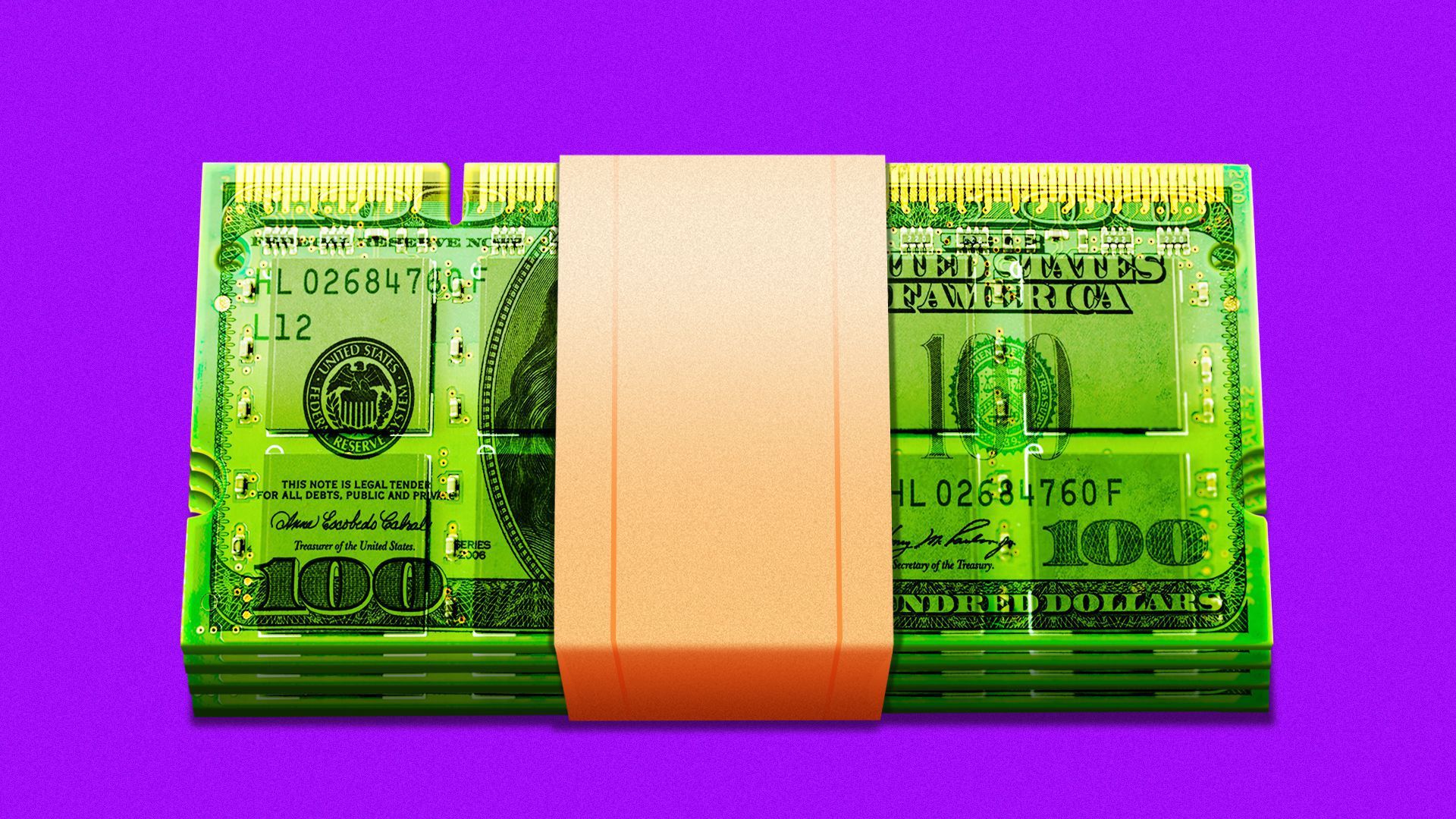| The billions in funding for chips and research Congress approved last week will take years to put a dent in the problems the funding targets, Axios' Margaret Harding McGill reports. Why it matters: The new Chips and Science Act's investments aim to ensure U.S. leadership in critical technologies and industries — especially producing the computer chips that power so many other products today. But those benefits won't show up fast for consumers having trouble finding the car they want or small businesses that need parts. Catch up quick: The Chips and Science Act provides $52.7 billion in funding for the semiconductor industry and about $200 billion for scientific research. What's happening: The semiconductor manufacturing facilities — known as fabs — that the funding will subsidize can take three to five years to build because of their complexity. - That means the earliest the government-supported chips will be available is likely 2025, although some companies may move more quickly because they've had plans in the works ahead of the funding.
What they're saying: Chipmakers say they need government support to level the playing field for the U.S., arguing that other countries already subsidize the industry. - Intel has said the scope and pace of its $20 billion plant site in Ohio depends on the federal funding, and the company could ultimately invest $100 billion in the state.
- Intel vice president of government relations Al Thompson told Axios he expects construction to start on the Ohio site this year, and noted the company is also investing in plants in Arizona and New Mexico.
Micron also announced its intent to bring leading-edge memory manufacturing to the U.S. after Congress passed the bill, and other semiconductor companies promised expansions of their own. - Micron senior vice president and general counsel Rob Beard told Axios the company is considering several sites in the U.S. for a major facility.
- Beard said that without the new subsidies, building in the U.S. as opposed to Asia is "30 to 50% more expensive... because those other countries already do what the Chips Act does."
The big picture: Rather than solving short-term problems, the U.S. government funding invites companies to invest on American soil and avert future supply-chain snafus the next time a crisis hits. - Other countries have incentivized semiconductor manufacturing in a way the U.S. has not, and "and as a result, we have slipped dramatically," John Neuffer, CEO of the Semiconductor Industry Association, told Axios.
- Advanced manufacturing facilities can cost $10 billion to $30 billion to build. The subsidies from the government provide "a little bit of seed funding" to incentivize construction, Rob Strayer, executive vice president of policy for tech trade group ITI, told Axios.
Meanwhile, the scientific research funding includes $81 billion authorized for the National Science Foundation, but it's not clear when that money could be appropriated, and it will take another act of Congress before cash flows to the scientific investments the law promises. - Earlier this year, NSF created a new Directorate for Technology, Innovation and Partnerships with a goal of helping to translate NSF-funded research into commercial products, but NSF director Sethuraman Panchanathan tells Axios the directorate needs the funding from Congress to fully realize its potential.
- He pointed to NSF-funded research from the early 2000s that eventually led to the formation of biotech firm Gingko Bioworks in 2008, which NSF also invested in. The company went public last fall after a $15 billion special purpose acquisition company, or SPAC, merger.
- "When we're talking about this investment authorization, what we're doing is we are speeding up and scaling the level of these activities, both on the curiosity-driven research side, as well as the user-inspired innovation side," Panchanathan told Axios.
Yes, but: While the chip funding bill was held up in Congress for more than a year, China's main chipmaker apparently figured out how to produce smaller-scale semiconductors rivaling those made in Taiwan, according to a New York Times report. | 






No comments:
Post a Comment